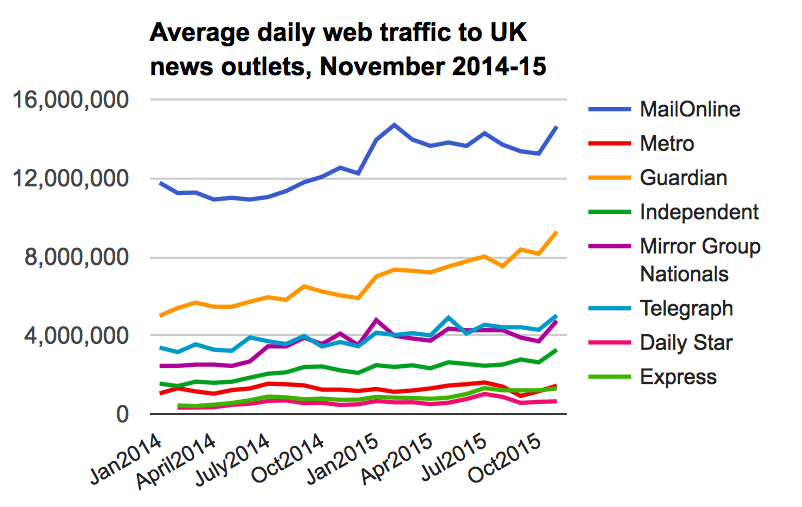Secure your place at the Digiday Media Buying Summit in Nashville, March 2-4

Traffic soared for a number of U.K. newspapers in November, but The Independent was a standout, growing 24 percent over October, to 3 million average daily unique browsers.
News of the Paris attacks lifted traffic for news sites across the board, but Independent parent ESI Media is attributing growth across its titles to September site redesigns to boost page-load time at the Independent as well as the Evening Standard, said Zach Leonard, managing director of digital for ESI Media.
Other goals were to improve ad viewability and make the sites responsive on mobile devices, Leonard said.

Slow load times are blamed for increased use of ad blocking, Leonard said it’s currently seeing far less than the 20 precent of traffic blocking ads that other publishers (such as City AM) have been reporting. To speed its load time, the Independent reduced the number of ad tags and introduced a lighter article format.

Distribution across social platforms also boosted traffic. One of the Independent’s best performers in November was “Who is Lucy the Australopithecus? Five facts you probably didn’t know about oldest hominin ever discovered,” which has racked up 23,000 social shares according to internal figures. “This shows that geography, science and anthropology are still hallmarks of the Independent brand,” said Leonard.
The Independent also has begun publishing half of its Facebook articles to the network’s fast-loading articles initiative, Instant Articles. (The other half are being published the old-fashioned way, with links back to the publisher’s site, although publishers get traffic credit for their Instant Articles views.
More in Media

Digiday+ Research: Dow Jones, Business Insider and other publishers on AI-driven search
This report explores how publishers are navigating search as AI reshapes how people access information and how publishers monetize content.

In Graphic Detail: AI licensing deals, protection measures aren’t slowing web scraping
AI bots are increasingly mining publisher content, with new data showing publishers are losing the traffic battle even as demand grows.

In Graphic Detail: The scale of the challenge facing publishers, politicians eager to damage Google’s adland dominance
Last year was a blowout ad revenue year for Google, despite challenges from several quarters.





